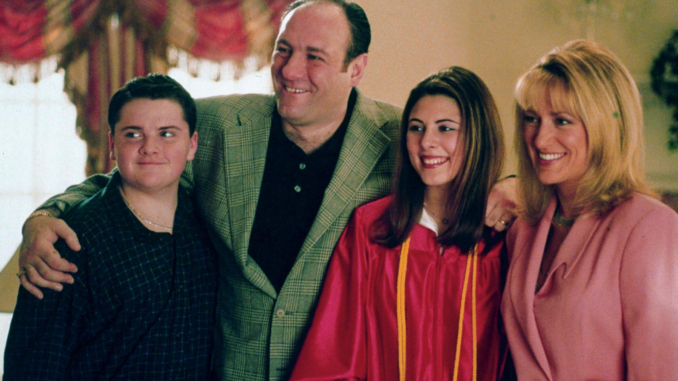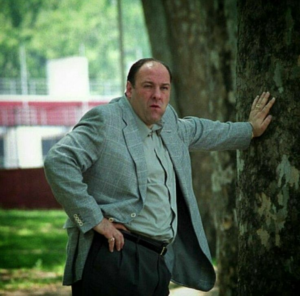
The Sopranos at 20: How James Gandolfini’s Mobster Revolutionized TV Anti-Heroes Forever
Twenty years ago, The Sopranos hit the airwaves, sparking a revolution in television. What began as a gritty mob drama soon became the touchstone for a new era of storytelling. It wasn’t just Tony Soprano’s rise to power that captivated audiences—it was the layers of complexity behind the character that forced us to reconsider everything we thought we knew about “good guys” and “bad guys.” Today, flawed anti-heroes are a staple on TV, but all of them owe a debt to James Gandolfini’s groundbreaking portrayal of Tony Soprano.
The Birth of the TV Anti-Hero
Before The Sopranos, TV shows were dominated by clear-cut heroes and villains. Think of classic heroes like Superman or The A-Team—characters who embodied traditional notions of right and wrong. But in 1999, The Sopranos broke away from that mold and introduced us to Tony Soprano—a mob boss who was as charming as he was brutal, as loving as he was violent.
Why Tony Soprano Was Different
Tony Soprano was the first major TV character to show us that a protagonist could be deeply flawed, morally ambiguous, and still someone we couldn’t take our eyes off. He wasn’t a perfect person by any stretch of the imagination—he had a temper, a criminal empire, and a lot of baggage. Yet, in his therapy sessions with Dr. Melfi, viewers saw his vulnerability, his emotional struggles, and his attempts to reconcile his family life with his mafia obligations. It was this depth that made him a game-changer for TV.

Tony Soprano’s Complexity: The Struggle Between Family and Crime
In many ways, Tony embodied the duality of human nature. As a father, he was loving, albeit flawed. As a mob boss, he was ruthless and calculating. The tension between these two facets of his life gave The Sopranos its emotional power and made Tony a character with whom audiences could empathize—even if they didn’t approve of his actions.
The Rise of TV Anti-Heroes: Tony Soprano’s Lasting Influence
Tony Soprano didn’t just pave the way for other mobsters; his influence can be seen in virtually every major anti-hero since. Characters like Walter White from Breaking Bad, Don Draper from Mad Men, and Frank Underwood from House of Cards all owe a debt to Tony’s unique brand of conflicted, morally gray leadership.
Breaking Bad: Walter White’s Descent Into Darkness
When Breaking Bad debuted in 2008, Walter White’s transformation from mild-mannered chemistry teacher to ruthless drug kingpin was reminiscent of Tony Soprano’s own internal conflict. Like Tony, Walter struggled with maintaining his family’s image while secretly navigating a criminal underworld. Both men started with seemingly noble intentions but gradually descended into darker, more dangerous territory, making their ultimate fate even more tragic.
Mad Men: Don Draper’s Hidden Desires
Don Draper, the central character of Mad Men, is another example of the modern anti-hero that owes its genesis to Tony Soprano. Draper’s flaws, especially his emotional isolation and constant search for meaning, closely mirror Tony’s own struggles. Like Tony, Draper is a man who hides his true nature behind a polished façade, and both characters grapple with the consequences of living a double life.
House of Cards: Frank Underwood’s Machiavellian Ambitions
Frank Underwood from House of Cards also draws heavily from Tony Soprano’s playbook. Underwood, like Tony, is a master manipulator who balances his ruthless political ambitions with the need to maintain personal relationships. Both characters find themselves at the crossroads of loyalty, betrayal, and power, making them some of TV’s most compelling anti-heroes.
Why Flawed Anti-Heroes Became TV’s New Normal
So why have flawed anti-heroes become the gold standard on television? The truth is that audiences today are more drawn to characters who are complex and multifaceted—people who aren’t easily categorized as “good” or “bad.” We crave nuance, and we enjoy watching characters wrestle with their moral compasses.
Humanizing the Villain: Tony’s Struggles Make Him Relatable
Tony Soprano’s complexity was not just a result of his violent actions—it was his internal struggle that made him relatable. While viewers may not condone his criminal activity, they could empathize with his struggles as a father, husband, and man trying to juggle two worlds. By humanizing the villain, The Sopranos blurred the lines between right and wrong, forcing us to confront uncomfortable truths about our own lives.
The Moral Ambiguity of TV Today
Today, characters like Tony Soprano have become a blueprint for shows that explore moral ambiguity. As we watch Walter White cook meth or Frank Underwood pull the strings behind political power, we find ourselves questioning who the “bad guy” really is. Is Tony’s crime justified by his troubled upbringing? Is Walter White just trying to provide for his family, or has he become consumed by power? The moral dilemmas that once seemed so clear-cut are now deeply layered, and viewers are drawn to the complexity.
The Impact of James Gandolfini’s Performance
While the writing of The Sopranos was revolutionary, James Gandolfini’s portrayal of Tony Soprano was the true heart of the show. Gandolfini’s ability to capture Tony’s vulnerability, rage, and charisma was unmatched, and it set the standard for the nuanced performances that followed. It wasn’t just about being a mob boss; it was about showing the cracks in Tony’s armor that made him feel like a real, flawed human being.
The Emotional Range of Tony Soprano
Gandolfini brought a depth to Tony that made him unforgettable. Whether Tony was breaking down in therapy or coldly ordering a hit, Gandolfini’s emotional range was on full display. His performance made Tony’s emotional struggles just as compelling as his criminal ones, making him one of the most memorable characters in television history.
The Legacy of Gandolfini’s Tony Soprano
Even after Gandolfini’s tragic passing in 2013, Tony Soprano remains one of TV’s most iconic characters. His legacy has lived on in the work of countless actors who have portrayed anti-heroes since. Whether it’s Bryan Cranston’s Walter White or Bob Odenkirk’s Saul Goodman, Gandolfini’s influence is evident.
The Sopranos’ Influence on Today’s TV Landscape
The Sopranos didn’t just create a character; it created an entire genre of TV storytelling. The success of The Sopranos directly paved the way for shows like Breaking Bad, Mad Men, The Wire, and Narcos. These shows took the lessons learned from Tony Soprano’s journey and expanded on them, creating more morally complicated characters and stories that defy conventional expectations.
The Rise of Streaming and the New Era of TV
The rise of streaming platforms like Netflix, Hulu, and HBO Max has further cemented the prevalence of flawed anti-heroes on TV. Shows that embrace complex, morally gray characters are now a standard fare for binge-watchers, allowing for deeper exploration of anti-hero narratives.
The Sopranos: A Cultural Milestone
More than just a show, The Sopranos became a cultural touchstone. Its impact goes beyond the screen, influencing everything from film to music, and even broader societal discussions about mental health, masculinity, and family dynamics.
What’s Next for the Legacy of Tony Soprano?
As The Sopranos celebrates its 20th anniversary, its legacy remains as strong as ever. While there’s no direct sequel to the series, its influence can still be felt in the way TV shows are made today. And with projects like The Many Saints of Newark offering prequel stories, Tony Soprano’s world continues to captivate both old and new audiences.
Conclusion
The Sopranos may have ended in 2007, but its influence is still deeply felt across the television landscape today. James Gandolfini’s portrayal of Tony Soprano helped shape a new era of TV anti-heroes, characters who are morally complex and deeply human. As we look back at the show’s impact 20 years later, it’s clear that Tony’s struggles, flaws, and triumphs were just the beginning of a new wave of storytelling that continues to dominate TV today.